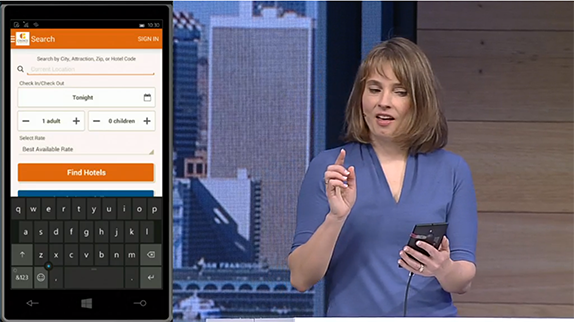
Microsoft announced its plans to launch tools for developers to quickly port Android and iOS apps to Windows 10 earlier this April. The tool for porting Android apps is called Project Astoria and the iOS porting tool is called Project Islandwood. The company did not launch Astoria publicly even months after the announcement. Now there are reports from Re/code and Windows Central saying that Project Astoria is on hold indefinitely, and maybe even shelved completely, but Microsoft doesn’t want to talk about it now, saying that Astoria bridge is not ready yet.
Microsoft has also removed the Android subsystem, that enabled ported apps to run on Windows, from its final version of Windows 10 Mobile that will roll out from December 2015. Blackberry had already adopted a similar strategy for BlackBerry 10.
With Astoria, Android developers will be able to code Android apps using Visual Studio and re-compile it, with Windows 10-specific APIs in a short time, so they can launch on all platforms at once. Navigation in the UI is more similar, and even desktop gets the all-important back button for letting them be universal apps.
In a statement to Windows Central and Re/code, Microsoft spokesperson, said:
We’re committed to offering developers many options to bring their apps to the Windows Platform, including bridges available now for Web and iOS, and soon Win32. The Astoria bridge is not ready yet, but other tools offer great options for developers. For example, the iOS bridge enables developers to write a native Windows Universal app which calls UWP APIs directly from Objective-C, and to mix and match UWP and iOS concepts such as XAML and UIKit.
Developers can write apps that run on all Windows 10 devices and take advantage of native Windows features easily. We’re grateful to the feedback from the development community and look forward to supporting them as they develop apps for Windows 10.
